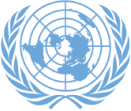Statement by the Honourable Carl Greenidge, Vice-President and Minister of Foreign Affairs of the Cooperative Republic of Guyana at the High-Level Plenary Meeting of the General Assembly to commemorate and promote the international day for the total elimination of nuclear weapons
Mr. President,
I thank you for convening this meeting to commemorate and promote the International Day for the Total Elimination of Nuclear Weapons. Guyana welcomes the opportunity to join with other Member States of the United Nations to reaffirm its commitment to the goal of realizing a nuclear-weapon-free world. We pledge our full support to all efforts leading to a world free of nuclear weapons.
Mr. President,
With the conclusion of the Treaty on the Prohibition of Nuclear Weapons, the international community moved to close the legal gap that previously existed in the international disarmament regime. For this reason, when the Treaty opened for signature on 20 September 2017, Guyana proudly joined the forty-nine (49) other Member States in signing the Treaty on that day. Indeed, Guyana was the first Member State to ratify the Treaty.
Our decision to both sign and ratify the Treaty was rooted in the long-held, principled conviction of the Government of Guyana that the total elimination of nuclear weapons is the only absolute guarantee against the use or threat of use of such weapons. It is a perspective shared by many countries of the world. The Treaty on the Prohibition of Nuclear Weapons now provides a clear and compelling pathway towards their total elimination. Accordingly, Guyana calls on all Member States to do their part to facilitate the early entry into force of the Treaty. Mr. President,
Among other things, the Charter of the United Nations obliges Member States to maintain international peace and security and to ensure that all peoples everywhere are enabled to realize their fundamental human rights. It is difficult to reconcile the possession of nuclear weapons by Member States of the United Nations with the
solemn obligations enshrined in the Charter. The development, possession and threat or use of nuclear weapons runs counter to the pursuit of these ideals and the discharge core responsibilities.
Nuclear weapons provide only a false sense of security to those who possess them while simultaneously provoking fear and anxiety at the prospect of these weapons being used. Fear and anxiety are well-founded responses to this prospect as we have already witnessed the intolerable human suffering that these weapons are capable of causing – suffering that can be protracted over generations – and we have also seen the devastating impact of these weapons on the environment. Contemplation of the catastrophic humanitarian and environmental consequences that would follow any use of nuclear weapons should erase any sense of security derived from their possession.
The continued existence of nuclear weapons is an affront to development. How can one simultaneously advocate actions aimed at improving the economic and social wellbeing of the world’s populations while harbouring one of the deadliest threats to that very wellbeing? It costs to produce, maintain and modernize nuclear weapons when the economic and human resources expended for these purposes could be better directed towards sustainable development efforts. It is ironic that resources should be expended on instruments capable of wiping out development.
Mr. President,
We the peoples of the United Nations have a moral obligation to rid the world of nuclear weapons and the international legal framework already exists to facilitate this. The Latin American and Caribbean region has been a leader in the fulfilment of this obligation becoming the world’s first nuclear-weapon-free zone with the entry into force of the Treaty of Tlatelolco.
Guyana is delighted that the Member States of the United Nations now have a fresh opportunity to demonstrate true commitment to international nuclear disarmament by becoming state party to the Treaty on the Prohibition of Nuclear Weapons and all other instruments that comprise the nuclear disarmament regime.
As we commemorate and promote the International Day for the Total Elimination of Nuclear Weapons and in light of the enhanced threat of the use of nuclear weapons in our world today it is very opportune for all Member States to join the circle of peace as we together rid the world of nuclear weapons. It is our continued hope that all counties will see fit to do so.
I thank you.


